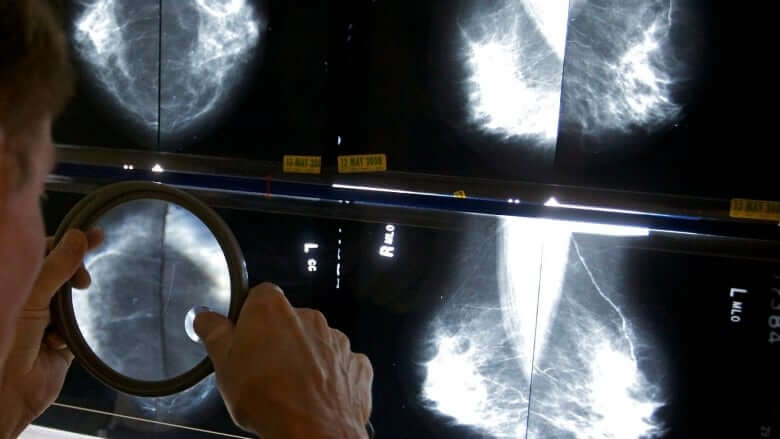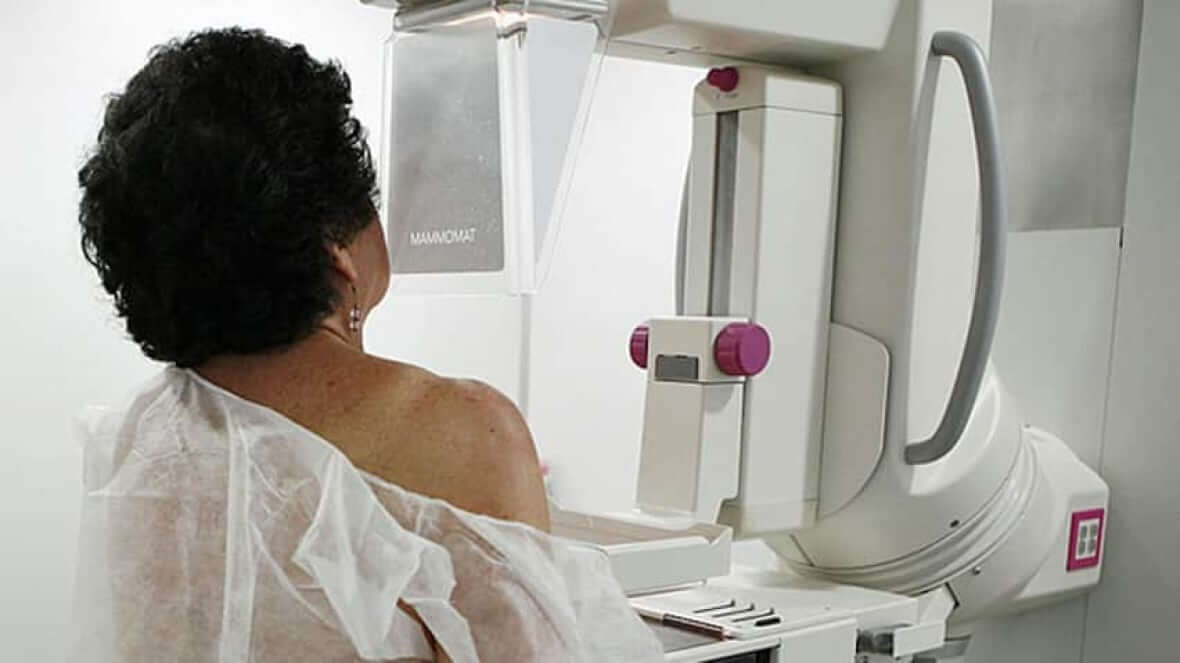Doctors, advocates call for changes to breast cancer screening guidelines

Doctors and breast cancer experts say they’re concerned about recently published findings that call into question a decades-old study that has informed Canada’s breast cancer screening guidelines and which led to a recommendation against yearly mammograms for women in their 40s.
A paper recently published in the Journal of Medical Screening alleges there were problems with the Canadian National Breast Screening Study which, since the 1990s, has helped inform Canada’s guidelines, and which concluded the benefits of regular mammograms for women in that age group did not outweigh the risks.
Researchers behind this new paper, though, claim participants weren’t sufficiently randomized, which they say would have skewed the results.
The paper adds to the long-standing and polarizing debate over whether women in their 40s should get regular mammograms and has prompted some organizations and family doctors to call on the Canadian Task Force on Preventive Health Care to review the new evidence and change its guidelines. Those guidelines are then passed on to the provinces, which set their own policies.
“The allegations … are concerning,” the Canadian Cancer Society wrote in a statement, and should be “taken seriously and investigated” according to the group’s executive vice-president of mission, research and advocacy, Dr. Stuart Edmonds.
He said the society believes women in their 40s should be able to be screened for breast cancer “based on their personal risk and values,” and should be informed to make that decision with accurate information of the risks and benefits.
Foremost among those risks is overdiagnosis, leading to treatment which presents its own risks.
Ottawa-based family physician Dr. Alykhan Abdulla said the new paper’s claims are “worrisome.”
“New information should make us think about decisions that we made in the past. We do it now with the omicron variant. Why would we not do that with breast cancer done studies done 25, 30 years ago?” he said.
While there is no national breast cancer screening program, many provincial programs follow the task force’s recommendations. In Ontario, patients require a doctor’s referral for a mammogram. Just three provinces allow women age 40 to 49 to be screened without a referral — British Columbia, Nova Scotia and Prince Edward Island.
Abdullah, who also served as chair of the general and family practice section of the Ontario Medical Association, said the findings in this new paper should push the task force and Ontario Health, the agency that oversees much of the province’s health-care system, to consider change.
“If we spend our time and our energy thinking that only women between the ages of 50 and 74 should get a screening mammogram, then we’re fooling ourselves,” he said.

Earlier detection is better, say experts
Some members of the radiology community have long called for women in their 40s to be included in provincial screening programs. They argue earlier detection of cancers increases a woman’s chance of survival or at least reduces the chance of requiring more invasive treatments.
“We detect an awful lot of cancers in women under age 50 who happen to come for screening,” said Dr. Murray Miller, past president of the Ontario Association of Radiologists and current chief of radiology at Collingwood General Hospital.
Miller said the new evidence is “quite compelling,” adding “it’s important that screening be done at a proper organized screening program rather than be left between the woman and her doctor to make the decision.”
Radiologists have been accused of wanting guidelines changed to align with their own biases, but Miller and Abdulla both argue Canada’s task force is also likely persuaded by external pressures when forming its guidelines.
“People have staked their careers on doing a good piece of work, and at that time, that was probably the gold standard of what was appropriate,” Abdulla said. “Those gold standards change and we live in a world now where we know more.”
No promises from health authorities
Despite these concerns and the new paper, Canada’s health authorities have not committed to any changes. In a statement, Ontario Health said it aligns its recommendation with the national task force’s guidelines.
“Ontario Health (Cancer Care Ontario) will continue to closely monitor the evidence and guidelines on breast screening in people ages 40 to 49,” read the emailed statement.
The task force previously defended its guidelines on breast cancer screening to CBC News, saying they “have been recognized as the best in the world.”
When asked if it had reconsidered its position, co-chair Dr. Brenda Wilson wrote the group “reviews all of its guidelines regularly to ensure they are still relevant and are based on the most current evidence.”
“We welcome new high quality studies, will integrate them into the evidence review, and affirm or update our recommendations accordingly,” Wilson said.





Redes Sociais - Comentários